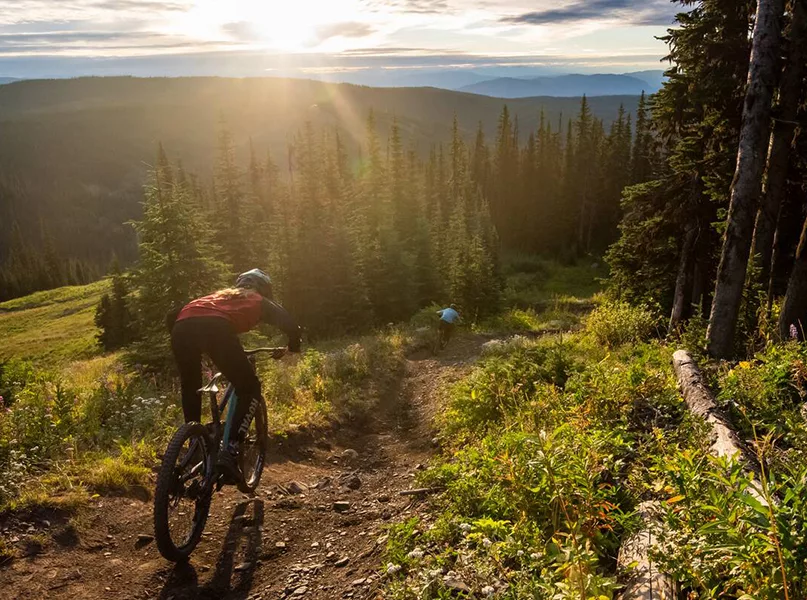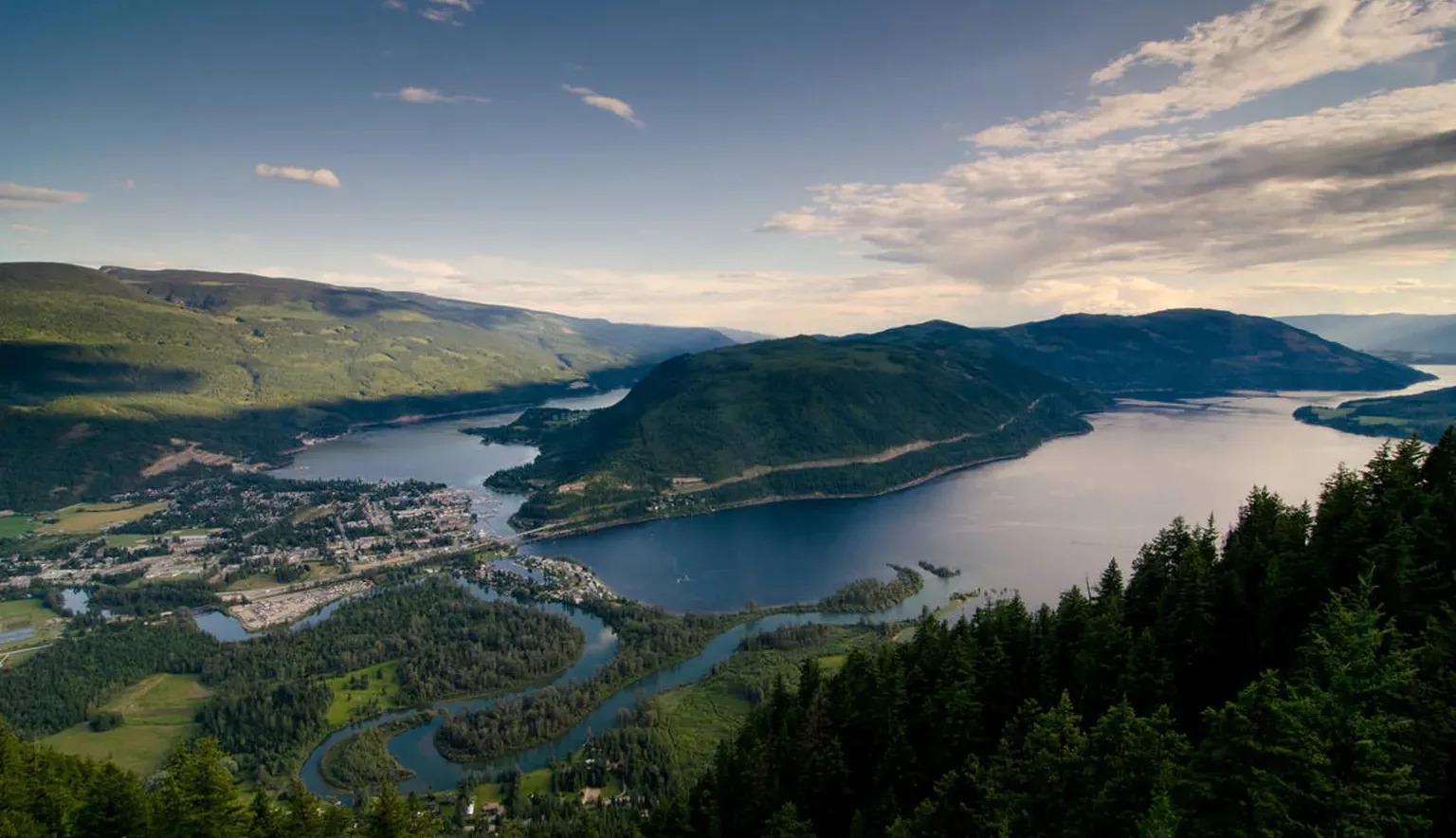Founded in 1996, the Thompson Okanagan Tourism Association (TOTA) stimulates sustainable growth, promoting authentic experiences and inspiring creative collaboration. CEO, Ellen Walker-Matthews, reveals how the region is embracing tourism through community engagement while remaining eco-friendly.
Q&A WITH THOMPSON OKANAGAN TOURISM ASSOCIATION
Can you talk us through the origins of TOTA and its initial vision?
Ellen Walker-Matthews, CEO (EWM): TOTA is one of five regions in BC that work together through a shared cost agreement with Destination BC and in support of the ‘Super, Natural British Columbia’ brand.
As an industry-led not-for-profit, TOTA supports more than 3,500 tourism stakeholders throughout the 120 communities and 32 Indigenous communities in the Thompson Okanagan region.
As a destination management organisation (DMO), TOTA provides tourism industry partners with guidance and support in numerous areas, including destination development, sustainability, travel trade, media, the application of marketing messages, stakeholder training, tourism crisis communications support, and more. Our mission is to encourage and support sustainable tourism growth for Indigenous and non-Indigenous communities through collaboration and research.
What criteria did you meet to win North America’s Responsible Tourism Award, and how will you ensure the industry continues with its responsible tourism initiative?
EWM: Advancing sustainability is one of TOTA’s guiding principles; awards like this greatly acknowledge our work.
TOTA has received the North America Travel Award for Responsible Tourism for the past five consecutive years and is honoured to be nominated again in this category. Votes are cast by tourism industry professionals, media, and tourism consumers.
In 2012, TOTA released a 10-year Regional Tourism Strategy that outlined the need to broaden, deepen, and diversify the region’s tourism offering and ensured that it happened through a sustainable and responsible lens. In 2017, the region was awarded Biosphere Certification by the Responsible Tourism Institute, which must be updated annually and is based on continuous improvement. We are pleased to have achieved their Gold Standard every year since our initial certification was received.
Since being awarded the Biosphere Certification, TOTA has continued to work with our regional DMO partners to expand the sustainability efforts province-wide. The BC Regional Tourism Secretariat, a collective of BC regional DMOs, agreed to work collaboratively so all tourism regions could achieve the Biosphere Certification.
As of today, we are happy to report that five or six regions have acquired Biosphere Certification and are all implementing their versions of the Biosphere Commitment Programme tailored to their tourism business’s needs.
Furthermore, the Provincial Ministry of Tourism recognised the region’s efforts to implement sustainability initiatives, and collectively, the BC Tourism Climate Resiliency Initiative (BCTCRI) was created. BCTCRI is a province-wide scheme that provides one-to-one support to tourism businesses in developing personalised sustainability roadmaps, providing expert consulting services, and identifying projects for funding.
We recognise the role that TOTA plays as a steward of the region, and we are committed to the careful and responsible management of the destination, the delivery of tourism products and services, and the thoughtful and mindful approach to the direction and development of this region.
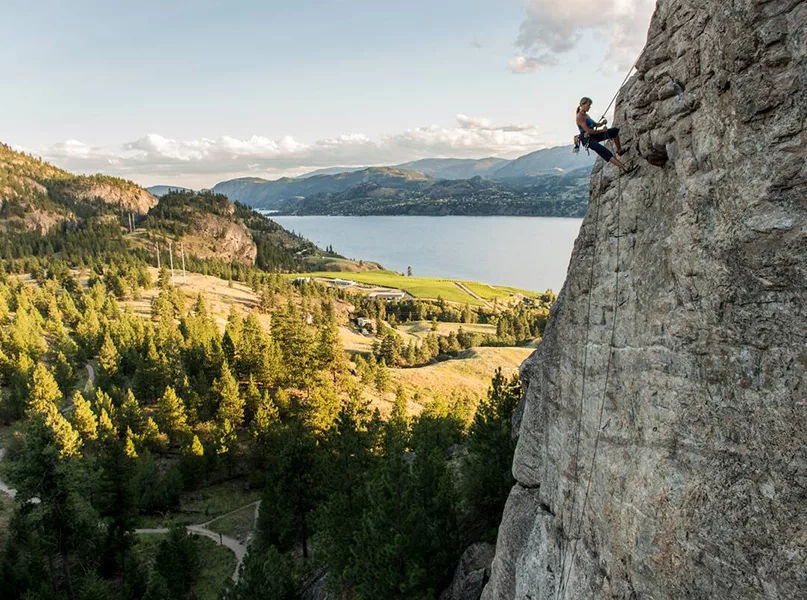
How is the Thompson Okanagan embracing and supporting sustainable or environmentally friendly travel experiences?
EWM: TOTA works directly with tourism businesses in the region and offers the Thompson Okanagan Biosphere Commitment Programme, which provides businesses with the tools to track, measure, and record their sustainable actions with support from Success Advisors.
Businesses log these actions on the Biosphere Sustainable Lifestyle Platform, which offers visitors a transparent look at the initiatives they are undertaking to create environmentally-friendly travel experiences while reducing greenwashing.
Since 2015, TOTA has collaborated with Indigenous Tourism British Columbia (ITBC). Over the past eight years, we have diligently cultivated relationships across our region, collaborating and establishing foundations grounded in Indigenous principles and traditions.
This partnership ensures our capacity to engage with each Indigenous community and business, fostering relationships and partnerships and understanding their priorities for tourism development.
Visitors to the region can expect to find travel trends that reflect sustainable practices. Locally sourced ingredients are prioritised at restaurants, wineries, cideries, and breweries, and feature in many available products. More environmentally friendly transportation options are also readily available to visitors, with e-bikes soaring in popularity for vineyard tours and day trips, accommodations offering shuttle services to and from the airport, and ride shares to and from different regions.
Finally, BC has embraced the guidelines of the 7 Generations Pledge, which is based on the Seventh Generations Principle and is rooted in Indigenous philosophy – the decisions we make today will impact the seven generations.
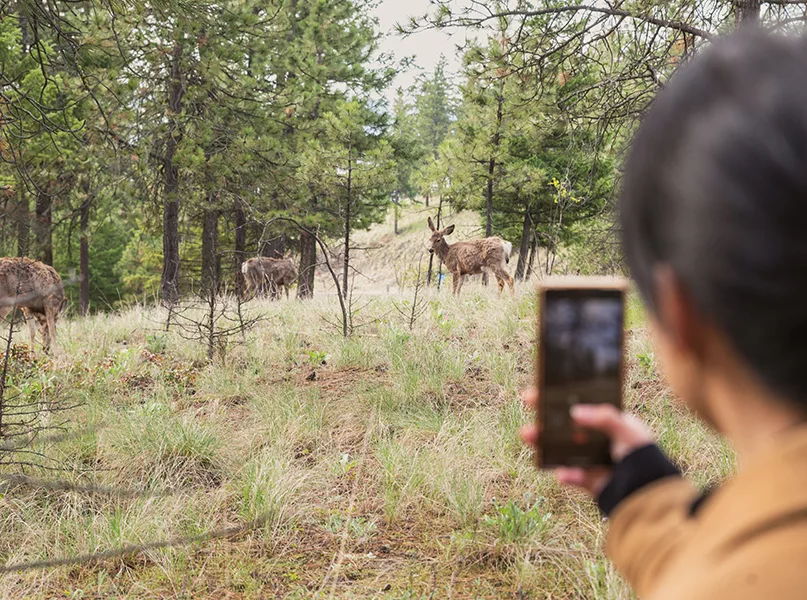
How do you market the region as a unique destination, and what types of travellers does it appeal to?
EWM: The Thompson Okanagan is a year-round destination with enriching options for visitors to experience, see, and learn.
Outdoor adventures are top of the list, and the region is proud to have various activities that appeal to varying skill levels. Whether you love mountain biking, hiking, rock climbing, bouldering, boating, paddleboarding, skiing (cross-country or downhill), or golf, this region will undoubtedly serve up something you will enjoy.
Agriculture has long been a staple of the Thompson Okanagan, with soft fruits such as cherries, peaches, pears, apricots, apples, and others leading the way.
In the past 40 years, the grape and wine industry has also been a big part of this growing scene and has witnessed the arrival of many cideries, breweries, and distilleries. Producing local goods has also assisted in attracting many talented chefs from around the country and the world. That area is now well known for its tremendous and unique culinary experiences.
It is a region rich in Indigenous culture, with sun-soaked valleys surrounded by sweeping grasslands and connected by water. We market the destination to mindful travellers of all demographics and continuously improve our inclusivity through programmes like Rainbow Registered.
We encourage people to stay longer and discover hidden gems they may not have considered visiting. The region is marketed through Destination British Columbia to international markets and our community DMOs, which focus on domestic markets. We support all their efforts by amplifying messages through media relations, social media, and website content creation.
As a region of diverse landscapes, what backcountry experiences does the Thompson Okanagan offer?
EWM: Winter in the backcountry offers an opportunity to submerge in fresh powder and enjoy the extreme adventure of heli-skiing, backcountry skiing, snowboarding, snowshoeing in Wells Gray Provincial Park, and snowmobiling in the North Thompson. In the summer, surround yourself with the untouched nature of the backcountry, where you can enjoy multi-day hiking and camping experiences.
Some of the businesses in the Thompson Okanagan that offer access to the backcountry in the winter and summer include Mike Wigley Heli Tours, CMH Cariboo Lodge, Wells Gray Adventure Tours, Dave Henry Lodge, and Snowy Mountain Lodge, amongst others.
Are there any interesting projects in the pipeline you wish to highlight?
EWM: We are working on several projects. Firstly, community engagement on low-carbon valley-wide transportation, funded by the Economic Trust of the Southern Interior (ETSI-BC), will help us to better understand resident and visitor sentiment around inter-community transportation options.
We are also continuing the development of a BC Rail Trail corridor that connects numerous communities throughout the Thompson Okanagan, from Osoyoos in the south to Sicamous in the north. This trail system is made up of three distinct Rail Trail networks – the Kettle Valley Rail Trail, the Okanagan Rail Trail, and the North Okanagan/Shuswap Rail Trail.
Furthermore, we are reinventing the Thompson Okanagan Tourism Inspiration Centre with the help of Clean BC funding to remodel the centre to a net zero standard and include better resources to tell the regional sustainability story.
Alongside this, the Adra Tunnel, an historic rail tunnel along the Kettle Valley Rail Trail, is reopening over three decades after it closed due to extensive damage. Many years ago, community volunteers, local businesses and government, and TOTA came together to attain the capital to clear out and reconstruct the tunnel to a safe standard for reopening.
Finally, numerous large-scale tourism investments are entering the region, including the announcement of the opening of a Ritz Carlton at Predator Ridge and the construction of a prestigious gondola project south of Vernon.
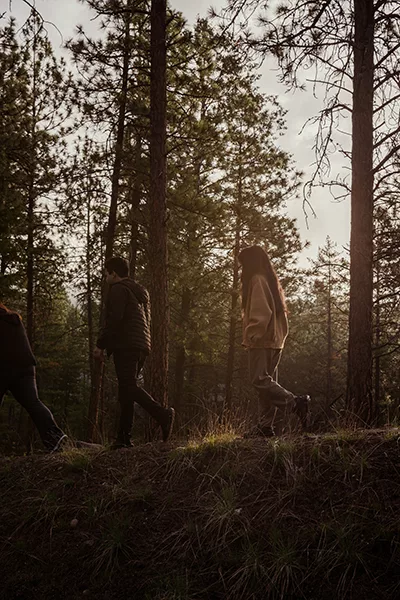
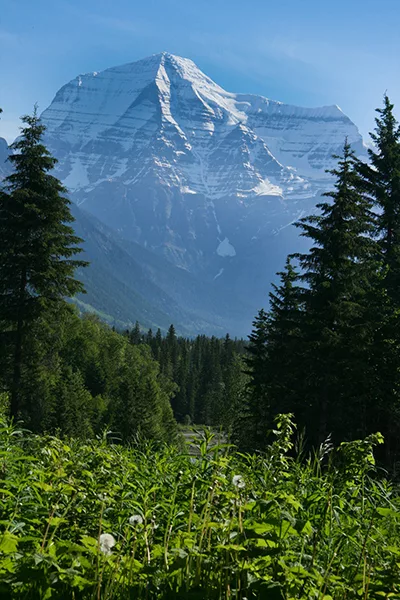
What advice do you have for visitors to the Thompson Okanagan on how to travel more sustainably?
EWM: Visitors are encouraged to seek out and enjoy the environmentally friendly activities available in the region. Visit Penticton has created the ‘Fuel Free… Almost’ initiative that can be applied in the city, and we encourage visitors to try to use this fuel-free mentality within the rest of the region as well.
More adventurous travellers may see the valley views through the BC Rail Trail on their bike, e-bike, or on foot. An increasing number of fuel-free rental alternatives are available to visitors, with many offering tips and tricks about self-guided tours around the region.
Local food and beverage producers also focus on sustainable agriculture and utilising local ingredients.
Travelling mindfully starts with planning which can result in a more sustainable visit to the region. Visitors can research accommodations, restaurants, activities, and other tourism businesses committed to sustainability by visiting the Biosphere Sustainable Lifestyle Platform or community sustainability webpages.
What trends are transforming the tourism industry in the region, and how are you utilising them?
EWM: Mindful Travel is a growing trend focusing on travelling sustainably and protecting the existing and future landscape of the region. We encourage visitors to travel mindfully with the 7 Generations Pledge and underlying sustainable messaging across all content.
There is also increasing demand for environmentally-friendly tourism options, with search engines and booking channels highlighting sustainable businesses. This changing sentiment amongst travellers offers tourism businesses a unique opportunity to measure and verify themselves as a sustainable option while differentiating from their competitors.
What challenges does the tourism industry in the Thompson Okanagan face? Is it difficult to ensure that visitors are practising ecotourism?
EWM: The Thompson Okanagan faces many of the same challenges as the worldwide tourism industry. Climate change is a risk to all, and we know that travellers consider the changes observed in our seasons when planning their trips.
The changes in environmental patterns throughout the region have encouraged sectors like the wine industry to look inward and work together to find solutions to evolve their farming practices with the more extreme temperatures throughout the year. Seasonal and geographical dispersion is also a top priority for TOTA and the province of BC to avoid overtourism. As a result, businesses throughout the region can remain open year-round.
It isn’t easy to track whether tourists are completely practising ecotourism, but we hope that our constant effort to encourage mindful travel throughout the region will result in increasing uptake in ecotourism year on year.
Are you optimistic about the future of the tourism industry in the Thompson Okanagan?
EWM: Travellers are demanding more sustainable practices within the tourism industry, and the provincial and federal governments are mandating reforms that will make it easier for businesses to adopt such practices, including a ban on single-use plastics and the end of fossil-fuelled small vehicle sales by 2035.
The global tourism industry has shared the movement towards climate action, as realised by the Glasgow Declaration and its many signatories. As we work together in the tourism industry to support sustainable efforts and find innovative ways to continue implementing said practices across businesses, we are optimistic that this is only the beginning of the region’s efforts and accomplishments.
